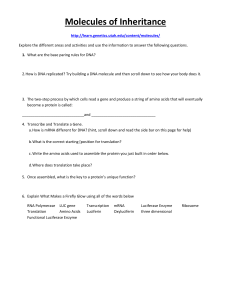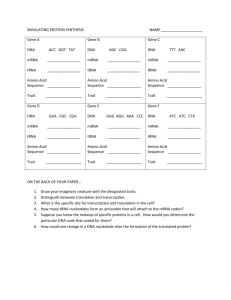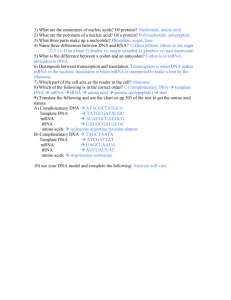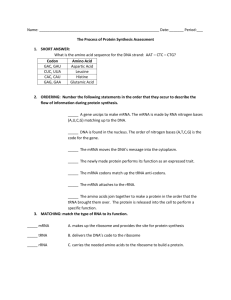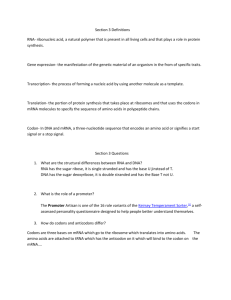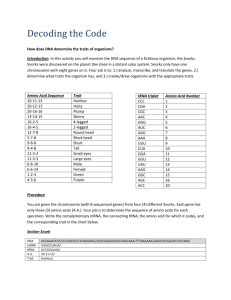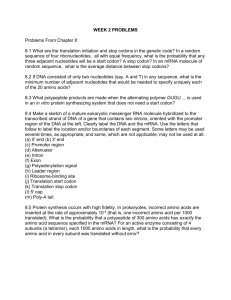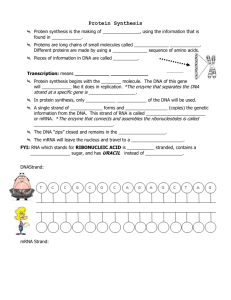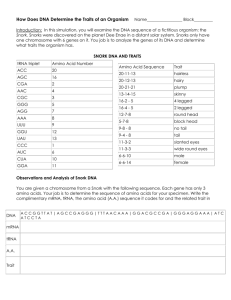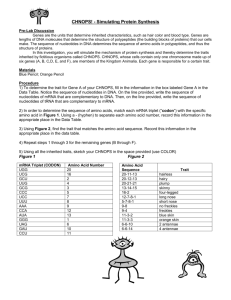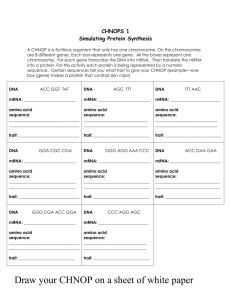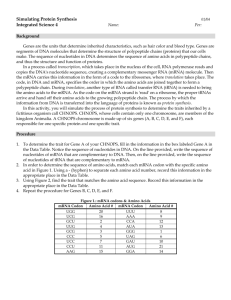Trouble with Tribbles Lab
advertisement
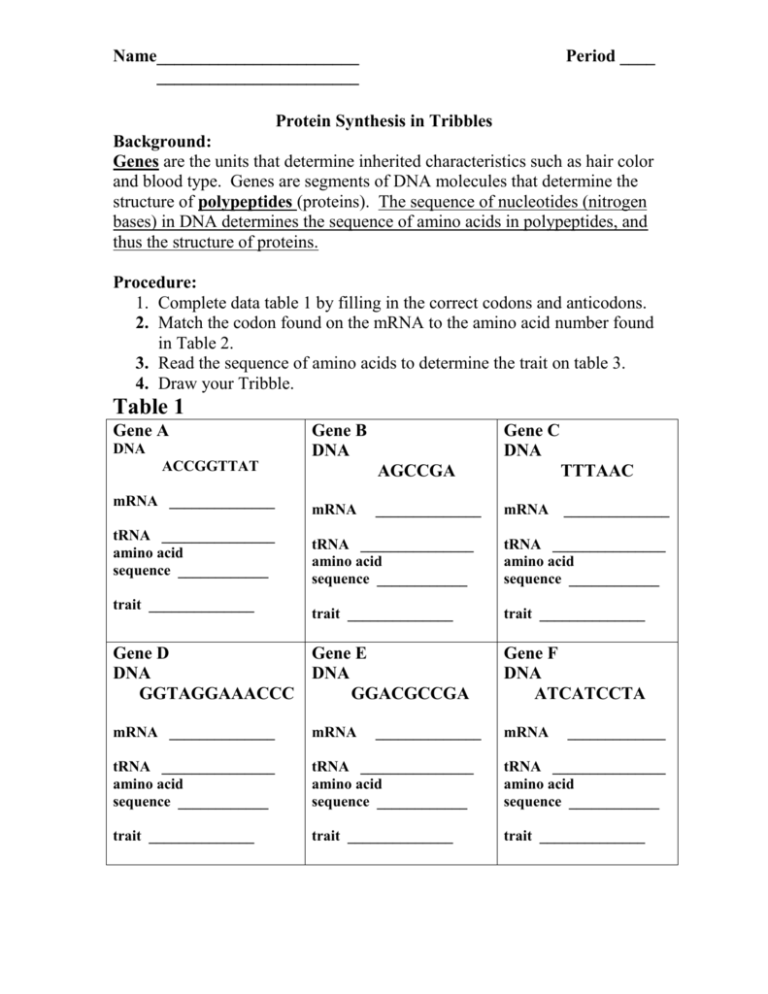
Name_______________________ _______________________ Period ____ Protein Synthesis in Tribbles Background: Genes are the units that determine inherited characteristics such as hair color and blood type. Genes are segments of DNA molecules that determine the structure of polypeptides (proteins). The sequence of nucleotides (nitrogen bases) in DNA determines the sequence of amino acids in polypeptides, and thus the structure of proteins. Procedure: 1. Complete data table 1 by filling in the correct codons and anticodons. 2. Match the codon found on the mRNA to the amino acid number found in Table 2. 3. Read the sequence of amino acids to determine the trait on table 3. 4. Draw your Tribble. Table 1 Gene A DNA Gene B DNA ACCGGTTAT mRNA ______________ tRNA _______________ amino acid sequence ____________ trait ______________ Gene C DNA AGCCGA mRNA ______________ TTTAAC mRNA ______________ tRNA _______________ amino acid sequence ____________ tRNA _______________ amino acid sequence ____________ trait ______________ trait ______________ Gene D Gene E DNA DNA GGTAGGAAACCC GGACGCCGA Gene F DNA ATCATCCTA mRNA ______________ mRNA mRNA tRNA _______________ amino acid sequence ____________ tRNA _______________ amino acid sequence ____________ tRNA _______________ amino acid sequence ____________ trait ______________ trait ______________ trait ______________ ______________ _____________ Name_______________________ _______________________ Table 2 mRNA amino acid codon number UGG 20 UCG 16 GCU 2 UUG 4 GCG 3 CCC 5 UCC 7 UUU 8 CCA 12 AUA 13 GGG 1 UAG 6 GAU 10 CCU 11 AAA 9 Period ____ Table 3 amino acid sequence 20-11-13 20-12-13 20-21-21 13-14-15 16-2 12-7-8-1 5-7-8-1 9-8 9-4 11-3-2 11-3-3 6-6-10 6-6-14 7-7-7 7-6-9 trait hairless hairy plump skinny four-legged long nose short nose no freckles freckles blue skin orange skin male female child old Analysis Questions: 1. Distinguish between transcription and translation, where do they occur what RNA molecules are involved with the processes? In detail 8 points 2. How many nitrogen bases make up a codon? 2 points 3. What is the difference between a codon and an anticodon, where do you find each? 4 points 4. What molecule carries the amino acids in the cytoplasm? 2 points 5. In what ways do DNA and RNA molecules differ? List all of them 6 points 6. What is the role of DNA in protein synthesis? 3 points Conclusion: 7. Suppose you knew the makeup of a specific protein in a cell. How would you determine the particular DNA code that coded for them? 4 points 8. Mutations, changes in the genetic code, can be harmful of beneficial. What effect could one amino acid out of sequence cause? How could this lead to variation within a species? 5 points
